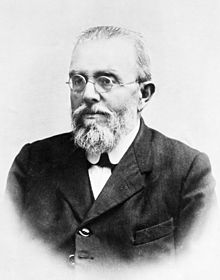Giovanni Battista Grassi
Giovanni Battista Grassi was an Italian physician and zoologist, most well known for his pioneering works on parasitology, especially on malariology. He was Professor of Comparative Zoology at the University of Catania from 1883, and Professor of Comparative Anatomy at Sapienza University of Rome from 1895 until his death. His scientific contributions covered embryological development of honey bees, on heminth parasites, the vine parasite phylloxera, on migrations and metamorphosis in eels, and on termites. He was the first to describe and establish the life cycle of the human malarial parasite, Plasmodium falciparum, and discovered that only female anopheline mosquitoes are capable of transmitting the disease. His works in malaria remain a lasting controversy in the history of Nobel Prizes, because a British army surgeon Ronald Ross, who discovered the transmission of malarial parasite in birds was given the 1902 Nobel Prize in Physiology or Medicine. But Grassi, who demonstrated the
Grassi was born in Rovellasca, Italy, in what is now the Province of Como. His father Luigi Grassi was a municipal official, and mother Costanza Mazzuchelli was a noted peasant of unusual intelligence. His early education was at Saronno.
Source: Wikipedia

